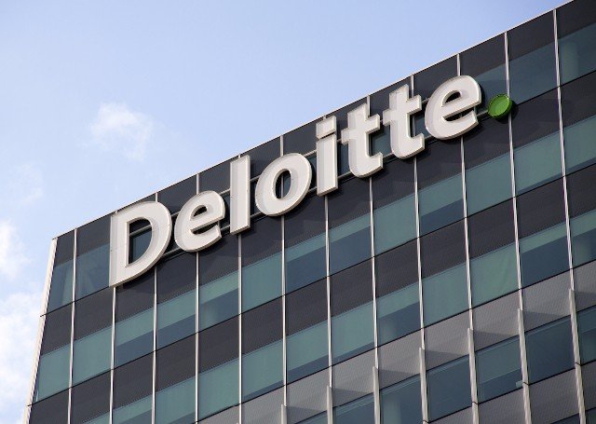Auditing and accounting firm, Deloitte Ghana, is urging the government to focus on reducing the total debt to Gross Domestic Product ratio to below 60% in the medium to long term.
This is considered the threshold for sustainable debt levels.
In its review of the 2023 Budget, it expressed worry about the rising domestic debt.
The government launched a Debt Exchange Programme on December 5, 2022 to restructure the country’s debt as a prerequisite for an International Monetary Fund programme. This is expected to affect the returns of pension and insurance funds.
Deloitte Ghana said whilst government has tended to focus more on the international capital market to raise borrowed funds, the domestic component of the public debt has also trended upwards.
“It is important to note that the increasing domestic debt limits the amount of credit available to private businesses as banks tend to lend more to the government, which is considered much lower in terms of risk profile as compared to the private sector. This ultimately results in higher lending rates for private sector businesses to compensate for their higher default risk”, it explained.
To address this challenge, it urged the government to further reduce its reliance on the domestic debt market by pursuing innovative revenue generation policies whilst adopting effective measures to boost our foreign exchange reserves and stabilise exchange rates in a bid to reduce the external debt accumulation resulting from depreciation, adding, “commercial banks should also be incentivized to increase lending to the private sector”.
Debt Exchange Programme could reduce government interest expense
On the Debt Exchange Programme, it said its success will result in some cash retention for government as it would have primarily deferred the commitment to settle maturing investments within the short term.
Government may also, therefore, be able to channel the cash retained through this deferral to other planned initiatives intended to expand the productive capacity of the economy.
The new bonds will be set at annual coupon rates that are considerably lower than the previous coupon rates contracted. In addition, the new rates are set to be graduated
from 0% in 2023 to 5% in 2024 and further up to 10% from 2025 onwards.
This Deloitte Ghana said if successfully implemented under these terms, the Domestic Debt Exchange programme will result in reduction in interest expense for Government and
also lead to improved cash flows, particularly within the short to medium term.
Overall, it said this will contribute to moderating government expenditure and improving the budget deficit.
Latest Stories
-
NDC Mining Committee for 2024 campaign refutes allegations of recruiting thugs for elections
6 mins -
Traction Control: A lifesaver with an off switch? Here’s why it exists
10 mins -
I don’t need anyman to woo me with money – Miss Malaika 2024 winner refutes pimping claims
17 mins -
”Kurt Okraku sabotaged my national team career because I refused to sign with Dreams FC” – Najeeb Yakubu
18 mins -
Businesses urged to leverage Generative AI for enhanced customer engagement
21 mins -
MultiChoice Ghana partners with Ghana Hotels Association to elevate guest entertainment
30 mins -
Bawumia’s music streaming app or Mahama’s pay-per-view TV channel?
35 mins -
Karpowership Ghana empowers 40 Takoradi Technical University students with scholarship
37 mins -
We expect significant reduction in prices of petroleum products in coming weeks – CEO AOMC
50 mins -
Betway Africa offers once-in-a-lifetime ‘Play-on-the-Pitch’ experience at Emirates Stadium
59 mins -
I coined the term ‘hype man’ in Ghana – Merqury Quaye
1 hour -
Vasseur questions ‘strange momentum’ of Formula One race director change
1 hour -
“I am disappointed in Kojo Manuel” – Merqury Quaye on “no tie” comment
1 hour -
Nana Kwame Bediako; The beacon of unity
1 hour -
Western Region: NDC youth wing embarks on phase 2 of ‘retail campaign’
2 hours

